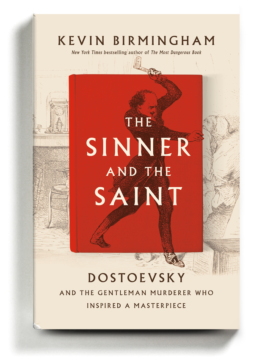Oliver Ready at Literary Review:
 There’s nothing wrong, of course, with taking one’s Crime and Punishment neat, without footnotes, introduction or weighty biography, sans everything except Dostoevsky’s incandescent text (as recast by your pick of fourteen translators). Countless readers, and all good formalists, have done just that, not least because the old translations tended to have no notes. Why interrupt the spell, the morbid giddiness that overcomes the trusting reader almost as strongly as it does Rodion Raskolnikov, in whose garret and mind we perch throughout the most searing pages of the novel? What’s more, this is a book that many devour when they are roughly the same age as Dostoevsky’s murderer (twenty-three), if not several years younger. Raskolnikov, as we first meet him, is imprisoned by his internal, ever ‘relatable’ struggle with social conventions and family pressures, and his story is in one shocking sense a universal metaphor: we all have our crimes to commit. Who has time for footnotes if your main concern is to determine whether you are with the ‘Lycurguses, Solons, Muhammads, Napoleons’, with those who have the right to transgress and trample over others, or whether you are merely a ‘quivering creature’ or, still worse, a bookish ‘aesthetic louse’?
There’s nothing wrong, of course, with taking one’s Crime and Punishment neat, without footnotes, introduction or weighty biography, sans everything except Dostoevsky’s incandescent text (as recast by your pick of fourteen translators). Countless readers, and all good formalists, have done just that, not least because the old translations tended to have no notes. Why interrupt the spell, the morbid giddiness that overcomes the trusting reader almost as strongly as it does Rodion Raskolnikov, in whose garret and mind we perch throughout the most searing pages of the novel? What’s more, this is a book that many devour when they are roughly the same age as Dostoevsky’s murderer (twenty-three), if not several years younger. Raskolnikov, as we first meet him, is imprisoned by his internal, ever ‘relatable’ struggle with social conventions and family pressures, and his story is in one shocking sense a universal metaphor: we all have our crimes to commit. Who has time for footnotes if your main concern is to determine whether you are with the ‘Lycurguses, Solons, Muhammads, Napoleons’, with those who have the right to transgress and trample over others, or whether you are merely a ‘quivering creature’ or, still worse, a bookish ‘aesthetic louse’?
more here.
